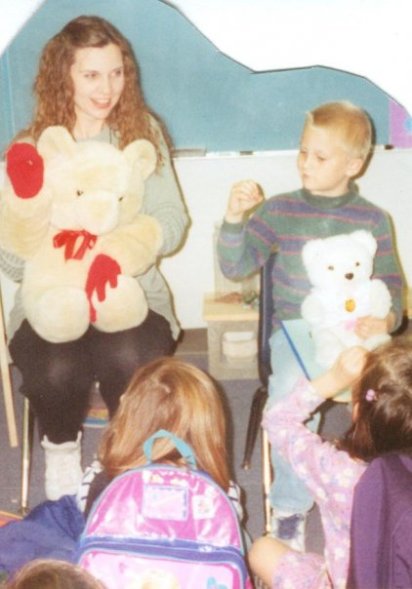Yesterday it was all over the news…another college campus tragedy. Although, thankfully this one did not result in fatalities, it was still tragic. What first caught my attention was the fact that I knew people teaching at this particular campus, and two years ago my daughter and I sat in the auditorium on that same campus to take in the Miss Deaf Texas pageant for the fun of it. Beautiful campus.
This time, the assailant attacked 14 people, not with guns, but with an x-acto knife or scalpel. The big news among the Deaf community was that this young man wore a Cochlear Implant Processor. Vlogs and Facebook posts were all abuzz.
Some say the CI messed up this young man’s head. Some say the fact he was homeschooled was a problem. Others say it was the hearing impairment that caused him to act out. Then I read a comment where one word jumped out to me and I’ve been holding on to that ever since. Identity. My mind dwelt on that a bit. I looked it up:
i·den·ti·ty [ahy-den-ti-tee, ih-den-]
1. The state or fact of remaining the same one or ones, as under
varying aspects or conditions
2. The condition of being oneself or itself, and not another
3. Condition or character as to who a person or what a thing is
4. The state or fact of being the same one as described.
5. The sense of self, providing sameness and continuity in personality over
time and sometimes disturbed in mental illnesses, as schizophrenia
Interesting…number 5…sense of self, providing sameness and continuity in personality over time…identity can be disturbed in those with mental illnesses according to the description from dictionary.com.
That led me to thinking even more…if mental illnesses could disrupt someone’s identity, could lack of identity contribute to mental instability? Possibly. Where is identity formed? In childhood, of course. How we relate to our parents, how we are guided, instructed, and shown love (or not). We have a sense of security midst the sameness our family unit offers us, but what happens when that sameness isn’t so…same? For example, when parents are deaf and their children are hearing, or vice versa, parents are hearing and the children are deaf? I look back on my own childhood and admit that although my parents were extremely supportive, accepted my deafness, accommodated me to a fault, and went above and beyond to ensure that I was included in everything, something was still missing. I felt loved and accepted, yes, but I struggled with my identity. Was I a hearing person trapped in a deaf body or was I a deaf person stuck in a hearing world? Did it matter? At the time, it was a non-issue. I didn’t have hangups over my hearing loss, and I functioned well in the hearing world. My issues, instead, were subconscious, only to surface at such a time as now (or last year, actually, during a conference in which the focus was on….yep, identity!).
I had a conversation with my oldest who admitted at the age of 22 that there were identity struggles as a CODA (Child of a Deaf Adult). I would never have known because he was a happy, well-adjusted kid growing up who participated in life and did well in school. But it makes sense. Whenever we have a mesh of two cultures in one household, there is bound to be identity confusion. How do we work around this? I believe the key is in accepting the differences, being open about them, and acknowledging the fact that those differences serve to enrich the family, not to contribute to identity issues. We can teach our children that they have something that we, the parents, do not have (and vice-versa, actually!), and that’s OK because it is those differences among us that make the family complete, functional and contributing. We can learn to embrace our own identity as well as that of others and take caution to never promote one over another, especially since we know all men were created equal, and God loves us all the same.
I found an interesting journal article that addresses the issue of identity between the deaf and hearing cultures. Read it
here.
Now I’m even more intrigued…I’m off to research more about Deaf/Hearing/Identity! Maybe this is the key across the board to reducing all these incidents of young adults on killing sprees! Give someone an identity they can be secure in and watch that crime rate decrease…one can hope, can one not?


